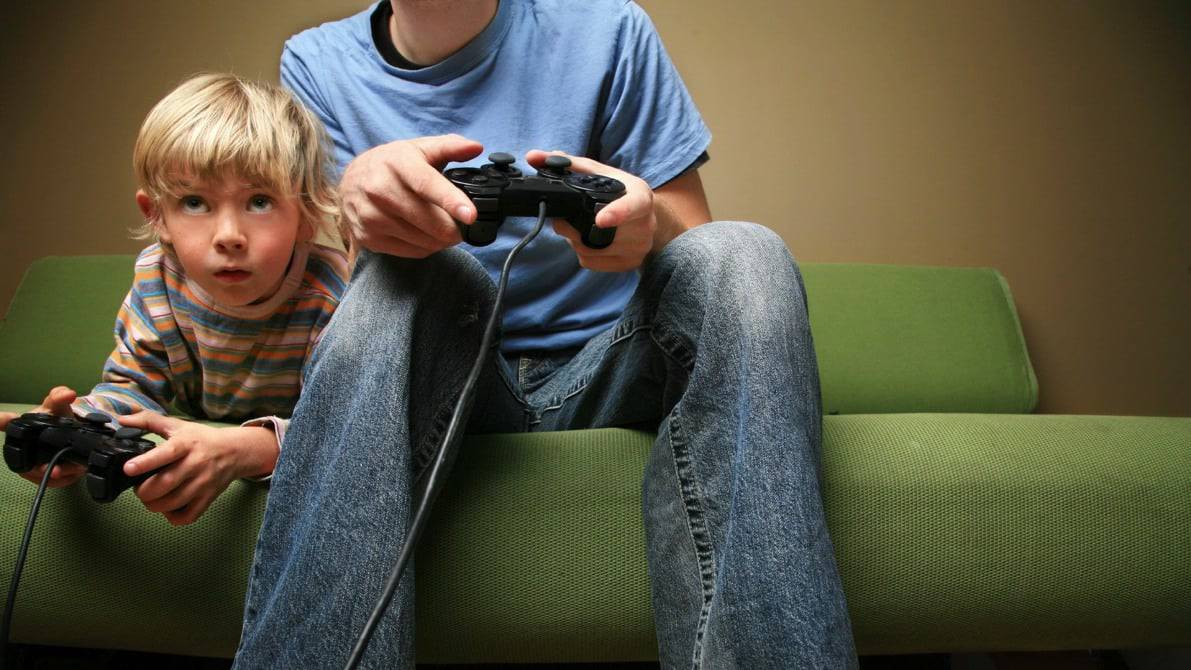Gaming
Can video games teach school-aged children to be more empathetic?
Video games are not the evil thing that so many news articles make them out to be.

Just a heads up, if you buy something through our links, we may get a small share of the sale. It’s one of the ways we keep the lights on here. Click here for more.
Video games are often seen as a hindrance to the development of a healthy young mind, but that isn’t always the case. While yes, sitting and playing video games for hours on end poses serious health risks, video games can actually be quite beneficial to a young person as they grow and mature.
Though the debate rages on to determine whether or not video games are harming kids, the science tells a pretty clear story of benefits, like teaching empathy and enhancing social skills in non-traditional ways.
Video Games Get A Bad Rap
It seems that every few years the media calls into question how video games are affecting the youth in the United States. They’re regularly depicted as fantastical refuges for young people to venture into in an attempt to forget all the hardships they encounter in the real world. Yes, video games can very much be an escape, but that doesn’t mean that they are poisoning the minds of an entire generation. In reality, recent studies have shown that video games requiring players to decipher the emotions of facial expressions and use cooperation actually teach empathy and social skills.
When video games are depicted negatively in the media, it is usually due to a recent, tragic incident involving gun violence. People are quick to blame video games for the violent tendencies that people can have, and even Donald Trump is guilty of putting the blame on video games for these terrible tragedies. However, doing this is short-sighted and only takes advantage of video games as an easy scapegoat, even when the science disputes the claim that video games cause violent tendencies and can instead change the brain for the better, boosting empathy.
The evidence of video games causing violence is incredibly thin, consisting mostly of anecdotal evidence and conjecture. Actual, hard science from one of the most comprehensive studies on the subject to date has shown that there is no link between violent video games and aggression in teenagers. Despite the evidence, the argument that video games cause violence persists, which also ignores all of the positive benefits that video games can offer people of all ages, especially for those who are still developing.
They Offer Low-Risk Situations To Learn In
The idea that America’s youth is incapable of separating the fiction of video games with the reality of everyday life is absurd. Video games don’t cause aggression in kids, it actually instills a sense of pride and accomplishment. The youth today are perfectly able to understand the difference between fiction and reality, and they actually use that to help them practice and develop in a low-stress environment.
While the modern American teenager is often categorized as a social butterfly, with a steady stream of Instagram posts and social media likes and shares, this can be far from the truth. Depression is actually rampant among today’s teens, and video games can actually help raise their self-esteem. Video games provide trackable progress and challenges that can make a teen feel great about their accomplishments without having to risk anything tangible. There are also no shortage of video games that are either specifically designed to foster empathy, or do so as a pleasant side effect
Video games can affect a teen’s emotional health in a variety of different ways other than simply improving self-esteem and the ability to express empathy. Multiplayer games can reduce anxiety and allow a young person to practice social interaction and form close bonds. Video games can actually fight depression and make an individual more resilient and optimistic overall. These are qualities that anyone strives for, and are especially important to a developing mind, and as a society we should recognize that video games can play an important role in a young person’s life.
Games Can Actually Help Develop Empathy
The cognitive benefits of kids playing video games doesn’t stop with a reduction in anxiety and depression. Children who regularly play video games have improved coordination, problem-solving skills, enhanced memory, concentration, and attention, and games can also improve the brain’s ability to multitask at high speeds. Most interesting, though, is the unexpected way that video games can improve social skills in children and young adults.
Behavioral scientists have used applied behavior analysis in conjunction with video games to identify and improve specific behaviors like social interactions, academic performance, and job competencies. Video games can offer positive reinforcement that applied behavior analysis relies on to help develop empathy in players by rewarding their actions within the game positively. Any number of scenarios within a game can help young people to learn the difference between right and wrong.
Online gaming can also help to develop empathy and sociability through the interaction between other players. While some children are painfully shy and have a hard time experiencing the friendships necessary for the development of empathy through traditional avenues, online gaming makes it much easier for them. Though some people write these relationships off as not true friendships, the bonds that players develop online are just as real and important as those forged in the real world.
Video games are not the evil thing that so many news articles make them out to be. They give young people opportunities that they might not otherwise receive in their daily lives to learn and grow. At the end of the day, video games really do help people develop in positive ways, despite the people claiming otherwise.
Have any thoughts on this? Let us know down below in the comments or carry the discussion over to our Twitter or Facebook.
Editors’ Recommendations:
- Antstream wants to let you stream retro video games almost anywhere
- KnowTechie’s most anticipated video games of 2019
- Violent video games could play a factor in desensitization
- The internet is the reason I no longer enjoy video games
Editor’s Note: Indiana Lee is a writer and journalist from the pacific northwest who has a particular interest in covering business and workplace issues, social justice, and politics. You can follow her work on Contently, or email her at indianaleewrites@gmail.com
































